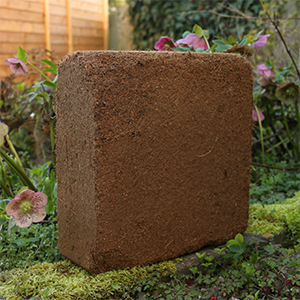
Choosing coir over peat: The environmental benefits of CoirProducts
For years, peat has been a popular choice in gardening and horticulture, known for its ability to retain moisture and support plant growth. But as
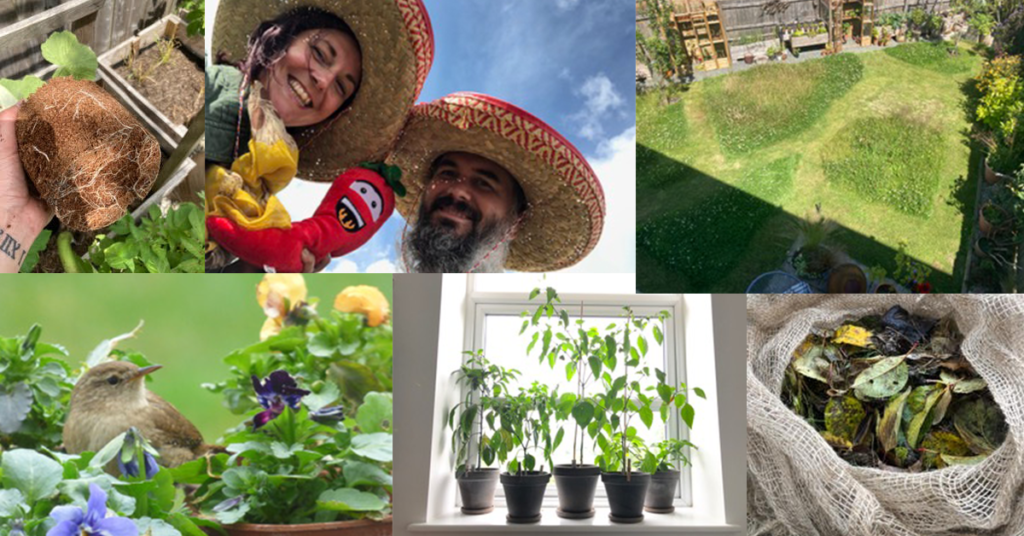
At CoirProducts, we not only strive to ensure that our products are safe and healthy for the environment, but we are always making efforts to oversee that our packaging is also eco-friendly. Over the last year, we have reduced our use in plastic packaging by introducing more sustainable alternatives; reusable Fairtrade cotton bags, recyclable cardboard boxes, and biodegradable bags which can be composted at home. One of our inspirations for cutting down on plastic is Sandy over at Good Roots Barns (@goodrootsbarn).
In 2020, Sandy decided to turn her passion for plastic-free gardening into a business and launched Good Roots Barn! In this blog post, Sandy tells us all about how Good Roots Barn came about, adopting a plastic-free lifestyle, and details what she does in her own gardening.
“It was a number of things that inspired me to start Good Roots Barn. I have been practising a plastic free lifestyle for many years and having worked in horticulture and witnessed first hand how plastic is treated as disposable, I really wanted to explore how I could garden more in line with my ethics. After some initial research I realised that there were so many alternatives not being offered in our local garden centres, and so I decided to set up the website.
I wanted to introduce gardeners to plastic free alternatives and also use the website as an information point to help educate too, so we have a blog, top tips, monthly job lists and bookshelf recommendations. Hopefully these help enhance the gardener experience when visiting our website.
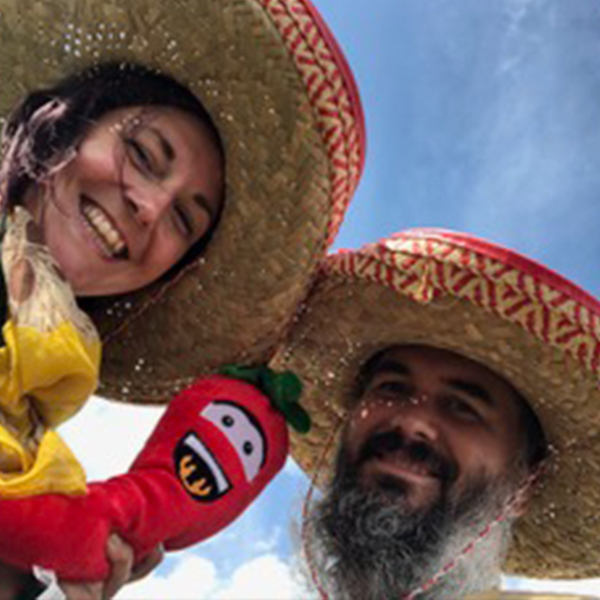
Gardeners are a frugal bunch, we don’t like waste and the fact that coir pots, trays and coir growing mediums are plastic free and home compostable is really appealing to gardeners and allotment holders. We also highlight the sustainability side of growing plastic-free; coir (for example) is a by-product of the coconut industry and would go to waste if the material wasn’t made use of, not to mention how incredibly beneficial it is for conditioning the soil, aeration, seed sowing, and the overall productivity of your garden.
However, sadly there is no way of getting around plastic in the garden, we are stuck with it whether we like it or not. So I also try to encourage gardeners to re-use, up-cycle and in some cases rescue unwanted plastic pots, trays, etc… from landfill. This helps to encourage gardeners to be part of the solution rather than the pollution”.
As Sandy said, plastic is primary material in many aspects of our lives, which is one of the challenges Sandy faced when started up Good Roots Barn:
“The challenges have actually come from suppliers not quite understanding that we are entirely a plastic free company and quite often orders arrive with plastic packaging or sellotape. And so we try to work closely with them to iron out those elements by making suggestions for alternative packaging.
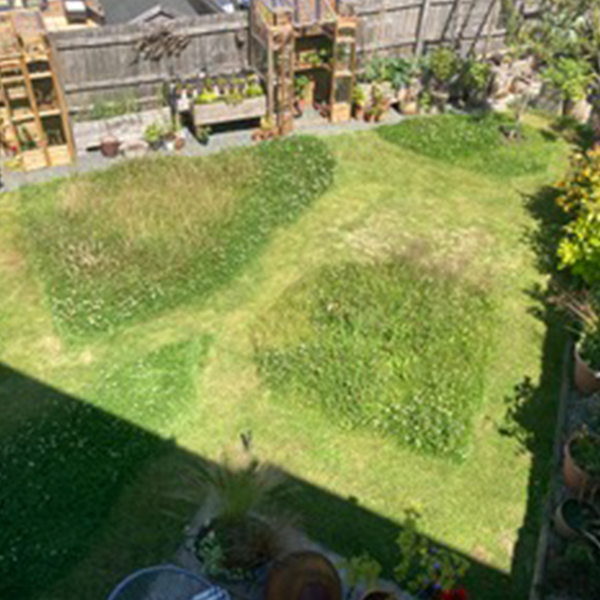
But it’s a learning curve for us as well as them, and most have been very receptive to our suggestions, but there are times when we would love to work with a supplier but sadly they have been unable (mainly due to cost) to meet our needs for plastic free, but very rarely”.
When CoirProducts first started supplying to Good Roots Barn, due to the nature of the product being quite dusty, we wrapped our products in shrink wrap. When Sandy requested that we send the products without it, while it did make packing a bit messier, we were happy to do it; this further inspired us to minimise the use of shrink wrap and plastic in our packaging.
Taking it back before Good Roots Barn was launched, Sandy tells us all about her own gardening inspirations and experiences, and what benefits it has brought to her life.
“I first started gardening when I moved into my first home in my mid twenties. It suddenly dawned on me that I had a lot of space to maintain and after careful consideration, I knew I wanted it to be productive as well as pretty.

So I immediately started growing vegetables and herbs. The magic behind sowing a seed and germinating it was addictive and my passion grew from there. I was so inspired by the joy of growing that at age 40, I decided to leave a well paid job in accounts to work for a family run plant nursery, which I loved, albeit in conflict at times with the level of plastic waste.
I like to practise some of the older techniques such as using a paper pot press, making my own compost and leaf mould. Like most gardeners I’m very frugal and I hate waste so I try to use as much home compostable supplies as possible, like coir, paper, card, hessian, as well as building all our planters from old wooden pallets. I encourage as much wildlife into our garden as possible, we practise “No Mow May ” and we leave our lawn to grow long for the duration of the year, and only mow out paths through the lawn, then it gets a final cut at the end of Autumn. We also practise “no dig” to maintain the soil structure and we operate a rotation on our beds to help reduce any chance of soil borne pests and diseases.
I love to grow my own vegetables above all else but I became hooked on growing chillies when I had to downsize my home and found myself without a garden for a time.
So I focussed on growing chilli plants and they are my passion, very easy to grow, even on a west facing window ledge. Such variety in, colour, shape, texture, and of course, taste. I’ve been to many chilli farms and picked up some wonderful tips and tricks along the way, not to mention an avid attendee to the chilli fiesta at West Dean Gardens, which sadly is no longer an event.
I have benefitted from gardening both physically and mentally. I enjoy being outdoors and having that connection with nature.
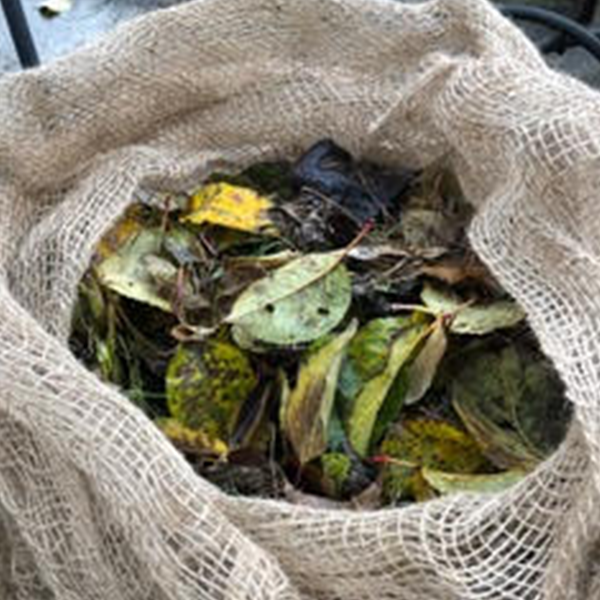
Growing my own vegetables is my passion, I adore the productivity of it and still to this day I’m astounded by what can be achieved from one packet of seed. I know exactly the conditions in which my plants have been grown and I know that no chemicals have been used. Working with nature is a joy, inviting predatory wildlife into my garden adds to the pleasure of growing and negates the need for any harmful chemicals.
It’s important to find your sense of peace, some people find it in meditation, books, yoga, I found mine in gardening”.
Good Roots Barn offers a wide range of plastic-free products for gardeners, including grow kits, planters, wildlife products, and seeds. But it doesn’t end there, Sandy has her own advice to offer to help gardener’s become more sustainable.
“I’d advise them to visit our website, have a read of our blogs and check out our top tips. It isn’t a big challenge to become a more sustainable gardener, it’s about making small adjustments to the way that you garden and considering the impact of your actions when you garden. I’d encourage all gardeners to build a natural ecosystem within their garden and protect it, it’s less about control and more about working with nature. Just like I encourage people to be more conscious consumers, I would encourage gardeners to be more connected with their gardens.

I love my garden to be productive but not just for me, it’s for insects, birds, worms, and sometimes in order to achieve that, you have to stop and sit and connect with the environment you are working so hard to achieve. Enjoy the still moments as well as the busy ones”.
You can find all of Sandy’s blog posts, advice, and full product range over at www.goodrootsbarn.co.uk. You can also follow their pages on Instagram, Twitter, and Facebook @goodrootsbarn. A number of the grow kits also feature our very own coir-based products so go ahead and check them out! Thank you to Sandy for sharing her gardening experiences, and the journey which led her to Good Roots Barn.

For years, peat has been a popular choice in gardening and horticulture, known for its ability to retain moisture and support plant growth. But as

At Coir Products by Salike®, we take pride in the quality of our products and the positive impact we make on the communities who help